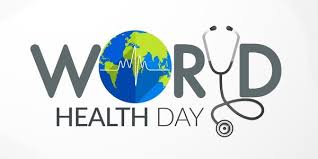
A healthy nation is a wealthy nation
Last Sunday, Ghana joined the rest of the world to commemorate World Health Day, a global health awareness day celebrated every year on April 7.
Advertisement
Since its inception at the First Health Assembly in 1948 and coming into effect in 1950, the celebration of the day aims at creating awareness of a specific health theme to highlight a priority area of concern for the World Health Organisation (WHO).
This year’s day, which was celebrated on the theme: “My health, my right”, focuses on the urgent need to fulfil the right to health for all, irrespective of religious orientation, tribe or where one comes from.
The theme echoed the importance of collaboration and unity in addressing the complex health challenges facing our world today.
The right to health and other health-related human rights are legally binding commitments enshrined in international human rights instruments as well as country-specific laws.
It was in recognition of the right to health that on December 12, 2012, the United Nations General Assembly endorsed a resolution on Global Health and Foreign Policy, urging countries to accelerate progress towards universal health coverage (UHC).
The UHC essentially means that everyone, everywhere should have access to quality, affordable health care, especially in national health systems, through primary health care and social protection mechanisms, to provide access to health services for all, in particular for the poorest segments of the population.
The UHC, grounded in primary health care, helps countries realise the right to health by ensuring all people have affordable, equitable access to health services.
The right to health provision in Article 12 of the International Convention on Economic, Social and Cultural Rights (ICESCR) recognises the right of 'everyone to the enjoyment of the highest attainable standard of physical and mental health' (ICESCR, 1976).
“My health, my right” as the 2024 theme resonates with us as a country because health disparities exist in the country, with marginalised populations often bearing the brunt of poor health outcomes.
In 2020, the world woke up to the outbreak of COVID-19 that echoed the increasingly clear need that no single country or organisation can tackle global health issues alone, indicating that the nature of our world means that a health threats anywhere is a threat to everyone.
In Ghana, the attainment of the UHC is heavily dependent on the National Health Insurance Scheme (NHIS) which ensures treatment is provided first before payment, and became law in 2003, as well as Ghana’s National Health Insurance Authority, which is responsible for monitoring and regulating the operation of health insurance schemes.
Basically, the NHIS is supposed to offer a comprehensive healthcare package to all citizens and is heavily subsidised by tax and the National Health Insurance Levy.
Unfortunately, the reality is that the NHIS, though its implementation was with a good intention, is not really delivering the kind of health services to card bearers as it is expected to do.
Currently, the NHIS covers merely consultations and other basic issues, but the real aspects of health that are life-threatening are not covered.
It is even public knowledge that health institutions give preferential treatment to non-users of the card as compared to those card bearers.
The Daily Graphic believes that there is the need to do real introspection of the NHIS and what it has originally been designed to achieve.
We believe that truly, the fact that the NHIS is a good policy is non-contestable, but the way it is managed is problematic. It is an undeniable fact that some health facilities are playing smart on the NHIA, thereby claiming money that ordinarily should not go to them.
Also, some of the health facilities, though registered with the NHIA, turn away patients who call on their facilities with the card.
The Daily Graphic believes that management of the scheme must crack the whip to ensure that those who are supposed to benefit from the service do so to ensure the overall health delivery for every Ghanaian.
Our maternal mortality figures, childhood diseases and non-communicable diseases are a heavy health burden on the country that require immediate attention as a nation.
As we approach the year 2030 for the attainment of the UHC, there is the urgent need for political will, and, indeed, an all hands-on-deck approach to ensuring that the health care of every individual is catered for.
Healthcare delivery in Ghana is an issue of human right and, therefore, the health needs of every Ghanaian is paramount.
We should use the commemoration of World Health Day to be deliberate in prioritising our health sector. After all, it is said that a healthy nation is a wealthy nation.




